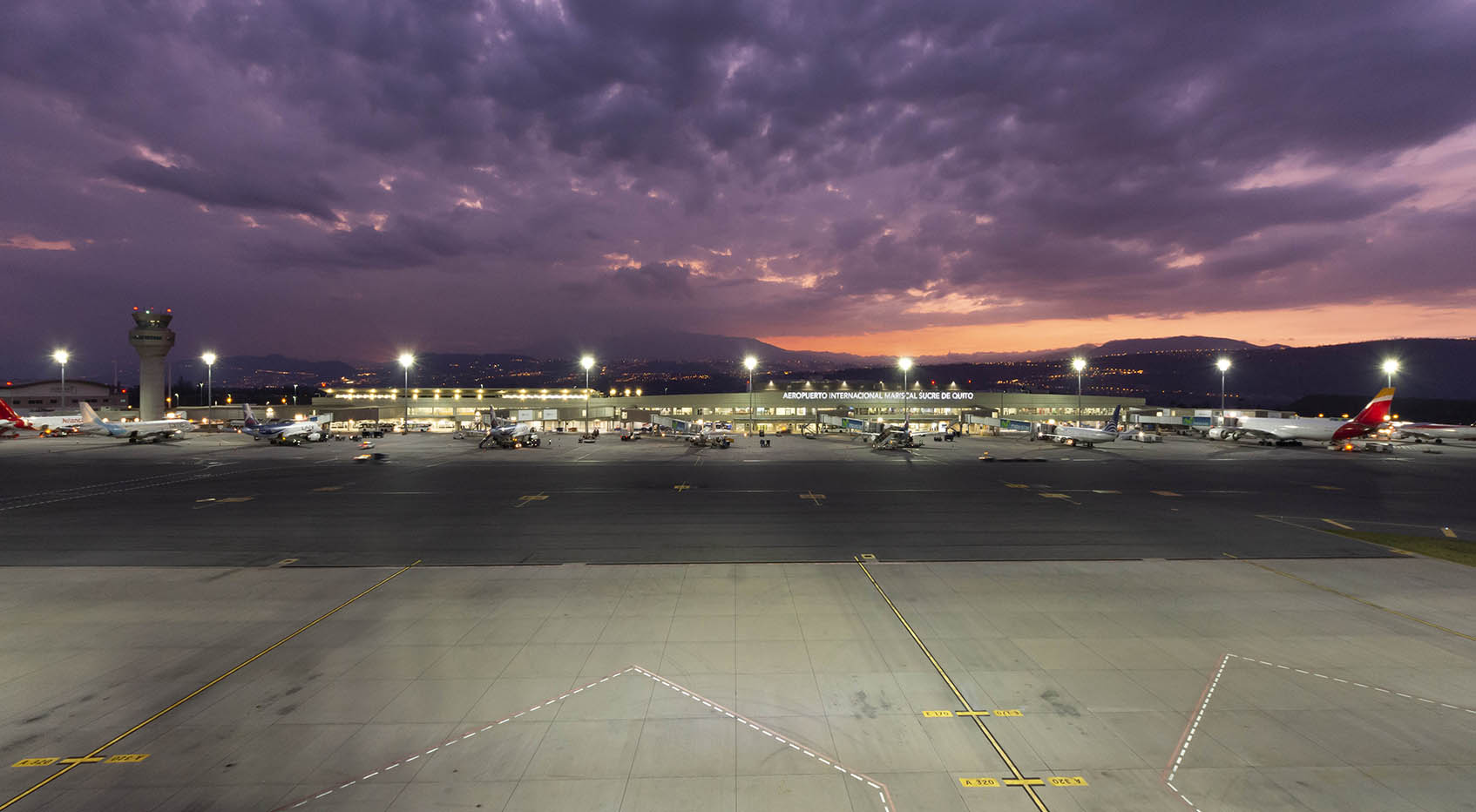QUITO INTERNATIONAL AIRPORT CELEBRATES 6TH ANNIVERSARY WITH A POSITIVE BALANCE

- 6 years connecting with quality from the Center of the World
Mariscal Sucre Airport began operating on February 20, 2013, becoming a driver of development for the Ecuadorian capital and transforming the city’s air transport. This year it reaches its sixth anniversary with a positive balance for connectivity, infrastructure, operations and its contribution to the economic development of Quito and the country. For both passenger and cargo activities, the airport, managed by Corporación Quiport, has undergone a process of consolidation that will allow it to face new challenges in the best conditions with an investment that has reached more than US$130,000,000 since 2013.
The operation of Quito Airport not only concerns the movement of aircraft, which is very important for tourism and business, but it also means providing efficient, safe and high quality airport services which give the best experience to the users of the airport. For 2020, the terminal will grow by a total of 18%, with a 21% increase in the processing area as part of Quiport’s US$ 90 million investment plan.
As regards connectivity, currently there are five more passenger airlines than at the start of the airport’s operations and an annual average of 14 cargo airlines use the facilities. These activities resulted in the transport of 5.2 million passengers and the handling of 231,945 metric tons of cargo by the end of 2018. Quiport’s strategy for developing routes is based on positioning Quito as a destination to establish new routes and increase flights and seat offering, thereby making the most of the airport’s operational advantages. This will achieve the vision of traditional airlines as well as low cost airlines continuing to arrive at Mariscal Sucre and offering more destinations and connection options to the people of Quito.
For Andrew O’Brian, President and CEO of Quiport, “Quito airport has been a key player in the development and growth of air transport in Ecuador through coordinated work with the national government, the Municipality of Quito and the Directorate General of Civil Aviation. So we begin this sixth year of operation renewing our commitment to the city and the country”.
Creating Employment
An important part of the impact of Quito International Airport is shown by the thousands of direct, indirect and induced jobs that it has created. The average salary of airport workers is 97% higher than the national average, thus contributing to the improvement in the quality of life. For the people of the six parishes in Quito International Airport’s area of influence (Puembo, Pifo, Tababela, Yaruquí, El Quinche, Checa) the opening of the airport has meant the creation of new transport options and improvement of the existing ones; better access to goods and services that enable the people to carry out their activities more easily; and the creation of new businesses.
Social Development
Plans and programs have been established to respond to the current social dynamics, based on a detailed analysis of the requests and needs of the people who live in the six parishes neighboring the airport. In 6 years, Quiport’s social responsibility programs have benefitted more than 100,000 people who live in the communities close to the airport.
Environment
Since 2006 Quiport has developed its operations on the principles of responsibility and respect for the environment. This motivates Quiport to lead initiatives focused on people and processes in order to help fight against climate change, to strengthen public knowledge about the environment, to protect biodiversity and to mitigate the potential environmental impact that airport operations might have. Through Quiport initiatives, more than 4,500 native trees have been planted on the Caraburo plateau, where Quito airport is located.
Recognition
- South America’s Leading Airport with an operating time of 99.7% with efficient, safe and high quality operations.
- Aerodrome Certificate, Mariscal Sucre International Airport Quito (MSIA) issued by the Directorate General of Civil Aviation, which confirms that the Mariscal Sucre Airport, its installations, services, equipment, systems and procedures guarantee the safety, regularity and efficiency of its operations.
- World Travel Awards – South America’s Leading Airport 2014-2015-2016-2017-2018
- Skytrax: Best airport staff 2017-2018
4-star airport 2016-2017-2018
Best regional airport in South America 2016-2017-2018
Every year we reaffirm our commitment to continue working for the development of air transport in Ecuador together with national and local authorities, airlines and productive sectors.
